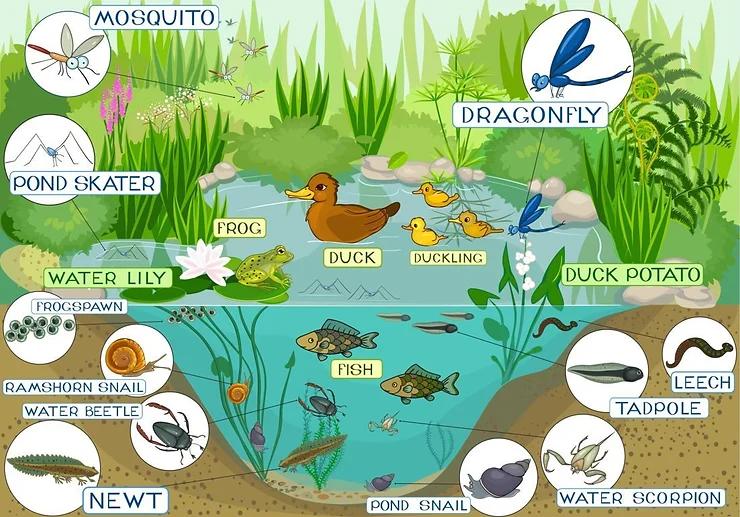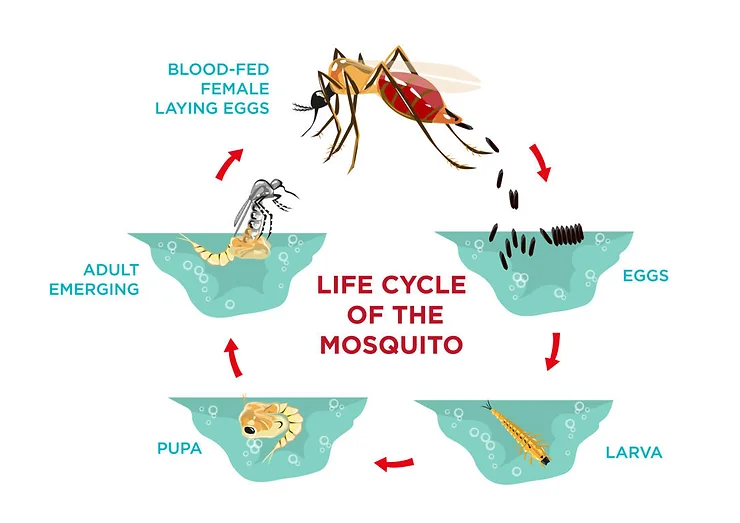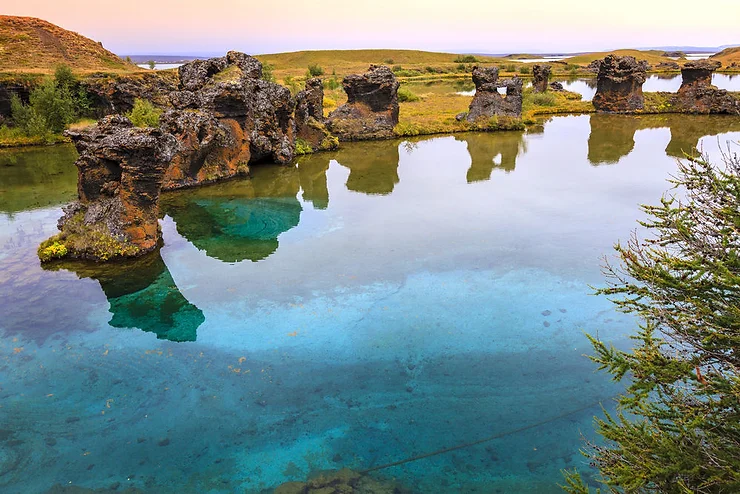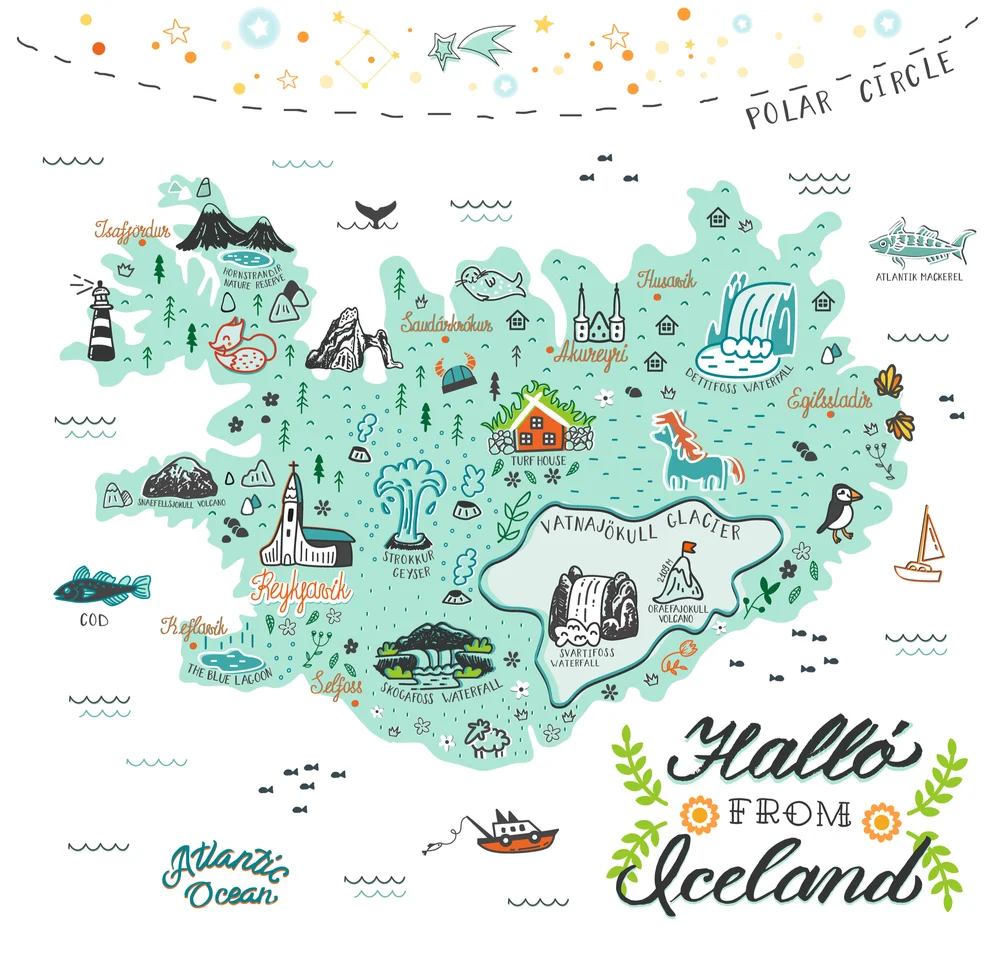Iceland is undoubtedly one of the most amazing countries in the world. The fantastic nature, culture, and history make the small island so unique. Somebody who has already had the chance to visit our country might say that Iceland has everything. This is mostly true. There is no other country which offers such a variety of attractions. You will find here powerful waterfalls, one of the largest glaciers in Europe, active volcanoes. This is also one of the few countries where you will enjoy the Northern Lights show. As I have mentioned, however, Iceland has mostly everything. There is something that you will not find here. Many of you are inquiring about it while planning your trip. This is why we have decided to answer the question: does Iceland have mosquitos?
Why do mosquitoes exist?
Usually, a mosquito bite does not have any harmful effect on our health. It ends up with slight swelling and itching of the skin. In tropical countries, mosquitoes can be a deadly threat, though. Through your blood, they spread many diseases like malaria, yellow fever, or Zika virus. Why do we need the mosquitoes then?
The mosquitoes are indeed necessary and make an essential part of our ecosystem. Their disappearance might cause a real catastrophe, and there are two main reasons why that could happen. The most important is that the mosquitoes are food for other species like swifts, swallows, bats, frogs, and toads. Their larvae are food for fishes. Those species would also start to disappear if there were no mosquitoes.

The other reason is that the male mosquitoes feed on the flower’s nectar. Thanks to that, they pollinate them, similar to bees or bumblebees. Imagine that we got rid of the mosquitoes; some plants would not bear fruits because their flowers would not be pollinated.
An ecosystem disruption could have catastrophic consequences. So even though mosquitoes are very inconvenient, we should simply try to discourage them from coming closer to us. For that, you will find many repellents. Otherwise, you can always move to a mosquito-free country, like Iceland.
Does Iceland have mosquitoes?
Iceland is said to be the only country that is mosquito-free and it has no ticks either. There are two theories about why Iceland has no mosquitoes. The most probable one is that the weather conditions are not favorable for mosquitoes. Even though the mosquitoes can handle low temperatures as those of the Arctic winter, they are not able to adjust themselves to Icelandic weather. There are three main freezes throughout the year, making it impossible for mosquitoes to breed in any lake in Iceland. Before they mature to be able to reproduce, the cold comes again, freezing the waters they need to emerge from.

To breed, mosquitoes need certain conditions. They can reproduce in a hot and humid environment, but at the same time, they can manage in a cold climate. Icelandic climate, however, is too unstable for them, and these insects cannot survive.
Another theory is that the water and soil in Iceland contain some chemical composition that is not favorable for mosquitoes. Global warming, however, is continually causing climate changes. This might also have an impact on mosquitoes’ appearance in Iceland. The average air temperature is growing, and new species of insects have appeared in Iceland. Those have not thrived there before. In that scenario, the mosquitoes might soon be able to breed in Iceland too.
The Icelandic Institute of Natural History allows seeing a mosquito in Iceland. It is captured in a jar, and until the climate changes drastically, it is nowhere else to be seen in Iceland.

Mosquitoes and flies in Lake Myvatn
It is not entirely true that Iceland has no bugs and no insects at all. One species is quite symbolic for Iceland. The whole lake was named after them, and those are midges. The midge might sometimes be mistaken with mosquitoes or flies. Midges are small flying insects, very tiny, and very Icelandic. One of the most famous attractions in Iceland was named after midges - The Lake Myvatn. It means the lake of midges. The lake is located in an active volcanic area in the North of Iceland.
In Iceland there are two most common types: Chironomidae, known as lake midges, and Simuliidae, called black fly. The first type, lake midges, does not bite either sting, so do not worry about it. The only harm they do is that they are incredibly annoying. They resemble mosquitoes, and this is why many tourists are convinced they saw mosquitoes in Myvatn.
The second type, which is black flies, are more dangerous to you. They bite and drink the blood of humans and animals. They cause dozens of small bites, which is hard to deal with.
You can only expect them in summer in specific locations, usually near the lakes where they breed.

How to protect yourself against mosquitoes?
You will find many different products offering protection against mosquitoes. Not all of them are so effective as they are advertised. There are also some natural ways of protecting yourself against mosquito bites. The essential oils, especially lemongrass, clove, and eucalyptus, are an effective weapon. They can be used in scented candles or to rinse the curtains. This way the insects will be deterred from entering the apartment.
However, if you are traveling, you will need something more practical, which can be taken with you anywhere you go. The best way to fight mosquitoes is to use products that contain DEET. It is an insecticide that protects best against mosquito bites and also other insects like ticks. You will find hundreds of products, including DEET but with a different concentration of it and forms of applications. The higher the percentage of DEET is, the more potent, and at the same time, the more effective the product is.
You might not be able to find mosquito repellents in Iceland, neither in the pharmacies or the supermarkets. Those are not an issue in Iceland, so you do not need protection against it. What you can prepare yourself for are the midges. Especially if you plan a trip to Lake Myvatn or a horse riding tour, you might need some right, useful product to spray. Those products are in high demand, especially in summer, and sometimes get sold out very quickly. The most commonly used is the Moustidose Deet with 30% DEET. In case you have already experienced the bites and your skin itches, try to apply the topical corticosteroid Mildison. The allergy medicine will also help and will reduce the irritation.


